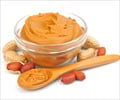the prostate specific antigen (PSA) test is subject to alteration by a variety of factors such as age, race, and diet
An article appearing in the in the January 15, 2006 issue of CANCER, the journal of the American Cancer Society, says that the prostate specific antigen (PSA) test is subject to alteration by a variety of factors such as age, race, and diet.
This could lead to false positive or false negatives values of the test and could cause confusion in the diagnosis. The value under consideration in the current study is the PSA velocity, which is calculated as the rate of change in concentration of prostate specific antigen (PSA) over time. It was found that age and body mass index (BMI) played a key role in altering the value of this particular test. This means that under this influence the value can either be artificially elevated or depressed. Previous studies have highlighted the fact that there has been a sharp drop in prostate cancer mortality since 1992. Researchers attribute this fall to an increase in screening for the cancer using the PSA test. However, many of the researchers maintain that this test alone leads to dodgy results and necessitates undergoing biopsies and transrectal ultrasounds. The current article says that even though the test has been modified over time o include calculations of PSA velocity, PSA density, and age-specific PSA, there is a distinct lack of understanding of the influence of diet, race, and weight on PSA and its related values.Alan R. Kristal, Dr.P.H. of the Fred Hutchinson Cancer Research Center in Seattle and colleagues have studied the effect of these factors on PSA and PSA velocity in ,341 cancer-free men. They found that the PSDA velocity decreased as the age increased and high-calorific intake increased. In men who gained weight rapidly and were on high-dose calcium supplement, the PSA velocity was found to be low. "Race, smoking, age, energy intake, calcium supplement use and weight change were associated with substantial differences in PSA velocity," the authors conclude. "Clinical interpretation of PSA velocity could be biased by these factors."
Main Article: "Associations of Demographic and Lifestyle Characteristics with Prostate-Specific Antigen (PSA) Concentration and Rate of PSA Increase," Alan R. Kristal, Chen Chi, Catherine M. Tangen, Phyllis J. Goodman, Ruth Etzioni, Ian M. Thompson, CANCER; Published Online: December 12, 2005 (DOI: 10.1002/cncr.21603); Print Issue Date: January 15, 2006.
Contact: David Greenberg [email protected] 201-748-6484 John Wiley & Sons, Inc.


![Prostate Specific Antigen [PSA] Prostate Specific Antigen [PSA]](https://www.medindia.net/images/common/patientinfo/120_100/prostate-specific-antigen.jpg)







